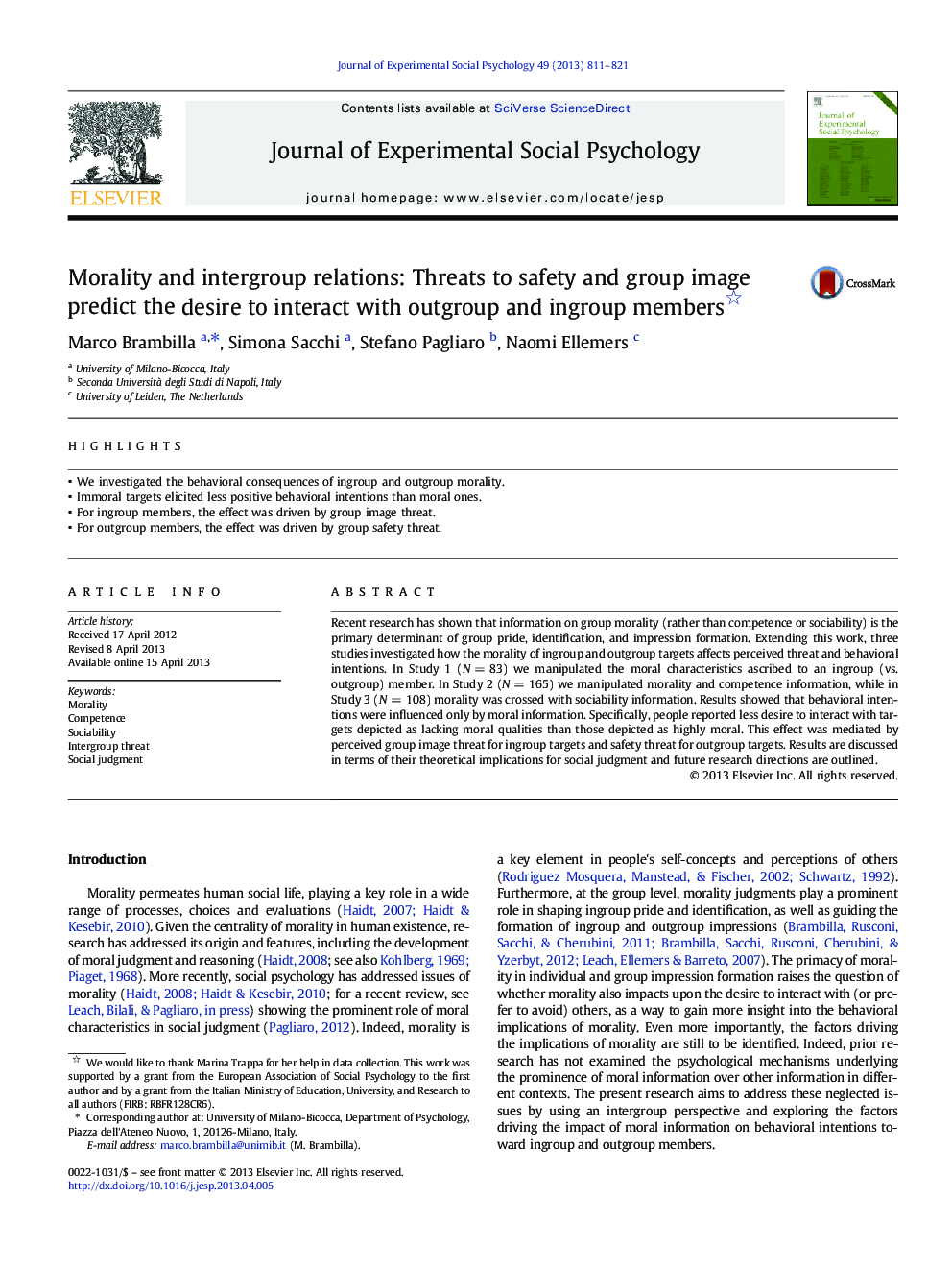| Article ID | Journal | Published Year | Pages | File Type |
|---|---|---|---|---|
| 948012 | Journal of Experimental Social Psychology | 2013 | 11 Pages |
•We investigated the behavioral consequences of ingroup and outgroup morality.•Immoral targets elicited less positive behavioral intentions than moral ones.•For ingroup members, the effect was driven by group image threat.•For outgroup members, the effect was driven by group safety threat.
Recent research has shown that information on group morality (rather than competence or sociability) is the primary determinant of group pride, identification, and impression formation. Extending this work, three studies investigated how the morality of ingroup and outgroup targets affects perceived threat and behavioral intentions. In Study 1 (N = 83) we manipulated the moral characteristics ascribed to an ingroup (vs. outgroup) member. In Study 2 (N = 165) we manipulated morality and competence information, while in Study 3 (N = 108) morality was crossed with sociability information. Results showed that behavioral intentions were influenced only by moral information. Specifically, people reported less desire to interact with targets depicted as lacking moral qualities than those depicted as highly moral. This effect was mediated by perceived group image threat for ingroup targets and safety threat for outgroup targets. Results are discussed in terms of their theoretical implications for social judgment and future research directions are outlined.
